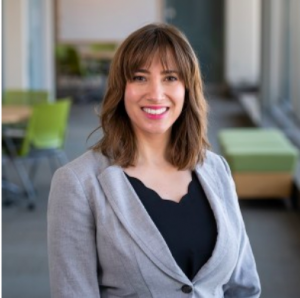How did you become interested in your BIAAS-related research project?
When I started my dissertation research year in Germany, I had initially wanted to write about Czech-speaking immigrants in the late 19th, early 20th centuries but wasn’t sure if I had anything new to say. Very near the beginning in the Saxon State Archives I found some volumes entitled “Transit of Foreign Emigrants through Saxony and the Registration Station at Leipzig.” They contained police protocols, embassy appeals, and business letters pertaining to this massive movement of people from Austria-Hungary and Russia overseas via Germany. That’s all I wanted to work on, which is a good sign for a project that might take 10 years!
In retrospect, I had found Ellis Island and migrant experiences there fascinating when I first read about it in 5th grade. Maybe it’s a general curiosity about why and how people move.
What is the significance of the transatlantic history between the US and Austria in your work? And, if this pertains to your work, how does looking at the transatlantic relationship enrich your research subject?
The United States was the main receiving country for emigrants from Austria-Hungary. US immigration regulations thus had a massive effect on the pre-boat departure screening system and checkpoints on the continent and in Britain. Aristide R. Zolberg refers to this US influence as “remote border control,” though I argue the German state had its own internal rationalizations for its registration and control station system.
What are must-read books for your topic?
– Points of Passage: Jewish Transmigrants from Eastern Europe in Scandinavia, Germany, and Britain 1880-1914, edited by Tobias Brinkmann (New York: Berghahn Books, 2013).
– Annemarie Steidl’s On Many Routes: Internal, European, and Transatlantic Migration in the Late Habsburg Empire (Purdue University, 2021).
– Tara Zahra’s Great Departure: Mass Migration from Eastern Europe and the Making of the Free World (New York: W. W. Norton & Company, Inc., 2016).
What resource (website, archive, book, etc.) do you return to often and why?
As much as I enjoy digitized and printed primary sources (especially because I can then sit on the couch and drink coffee), on-site archives open many unexplored research avenues. Not very many immigrant memoirs or autobiographies describe the journey to the United States (who likes to remember motion sickness?). Bureaucratic sources, however, detail the different strategies and methods migrants used to cross borders as well as their reactions to the screening system.
Which scholar(s) do you admire the most? Why?
The scholars I admire the most are the ones who have respect for others regardless of professional status. Along with their excellent work, my mentors in grad school really emulated this. Academia right now is really a game of luck as much as merit, and I think most people recognize that.
What is your favorite off the beaten path locale in the Austria/Habsburg lands?
I love taking the train from Dresden to Prague, or vice versa, along the Elbe Valley. The landscape is beautiful, and it’s fun to watch and hear the languages change.
If you could meet with any Austrian/Habsburg figure of present or old, who would it be? Why? What would you want to ask them or talk about?
In the archives I found a 1920 statement by an Austrian nurse named Anna Soukup. She got caught up in the Russian Civil War while part of a Red Cross typhus mission in Ukraine and was at one point forced to work for the Bolsheviks. She was actually testifying against an Austrian Communist, a bit of a hothead, who, on the internee transport via Hamburg, heard her saying she thought circumstances were better in Austria than in Russia. He shipped her back to Moscow, and she had to make her way home again. There’s so much information missing about her journey that I would like to ask her about.
What are you currently reading? Or watching?
I’m currently reading The Next Great Migration by Sonia Shah. It’s a really great breakdown of the notion of migration as a “problem” instead of a natural method of adaptation.
I just saw La Ciénaga and thought it was electric. I can’t wait to watch the rest of Lucrecia Martel’s films.

